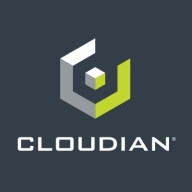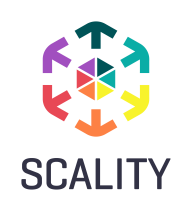



Find out what your peers are saying about Red Hat, Nutanix, Dell Technologies and others in File and Object Storage.
| Product | Market Share (%) |
|---|---|
| Dell ObjectScale | 7.3% |
| Scality RING | 4.2% |
| Pure Storage FlashBlade | 5.7% |
| Cloudian HyperStore | 3.1% |
| Other | 79.7% |




| Company Size | Count |
|---|---|
| Small Business | 11 |
| Midsize Enterprise | 11 |
| Large Enterprise | 20 |
| Company Size | Count |
|---|---|
| Small Business | 3 |
| Midsize Enterprise | 1 |
| Large Enterprise | 4 |
| Company Size | Count |
|---|---|
| Small Business | 12 |
| Midsize Enterprise | 12 |
| Large Enterprise | 11 |
| Company Size | Count |
|---|---|
| Small Business | 3 |
| Midsize Enterprise | 1 |
| Large Enterprise | 12 |
FlashBlade is the industry’s most advanced scale-out storage for unstructured data, powered by a modern, massively parallel architecture to consolidate complex data silos (like backup appliances and data lakes) and accelerate tomorrow’s discoveries and insights.
Cloudian HyperStore lets you start small and grow to hundreds of petabytes on-premises simply by adding nodes. Leverage the proven interoperability of the industry’s only 100% native S3 API.
Dell ObjectScale is a next-generation S3 object storage platform known for scalability, performance, and efficiency. It integrates with Dell EMC products, combining hardware and software for seamless user experience in the AI era.
Dell ObjectScale implements the S3 protocol, integrating smoothly with Dell EMC solutions like ISILON. Its architecture supports data compression and interoperates with multiple protocols for enhanced performance. Enterprise features include immutability, geo-replication, and user-friendly management. However, it needs better integration with other systems, enhanced security, and disaster recovery. Write performance and scalability improvements, competitive pricing, and documentation enhancements are key areas for progress. The interface could be more straightforward, with more remote management features and native analytics.
What features does Dell ObjectScale offer?Industries leverage Dell ObjectScale for cloud-based object storage, archiving, and backups. It's favored for unstructured data management, CCTV integration, and document archiving. Strong in data analytics, it integrates well with high-capacity applications, enhancing data retention strategies across fields.
Scality RING is the scalable and resilient object storage solution designed for modern workloads, providing seamless data protection against evolving cyber threats.
Scality RING leverages S3 object storage to meet unpredictable demands with a patented MultiScale Architecture that offers limitless scalability across capacity, performance, and more. It delivers end-to-end cyber resilience with CORE5 for ransomware protection, while its cloud-style economics and intuitive management empower enterprises to accelerate AI initiatives and optimize cloud deployments. Its flexibility is ideal for service providers managing extensive data needs.
What are the key features of Scality RING?Scality RING is extensively implemented in backup solutions across industries, supporting platforms like Veeam and CommVault. It aids in storage expansion and management of large data volumes alongside multi-site architectures. While not leading in AI spaces due to performance constraints, there's potential with faster disk support. It's also used in archives, binary lakes, multimedia services, and AI data lakes.